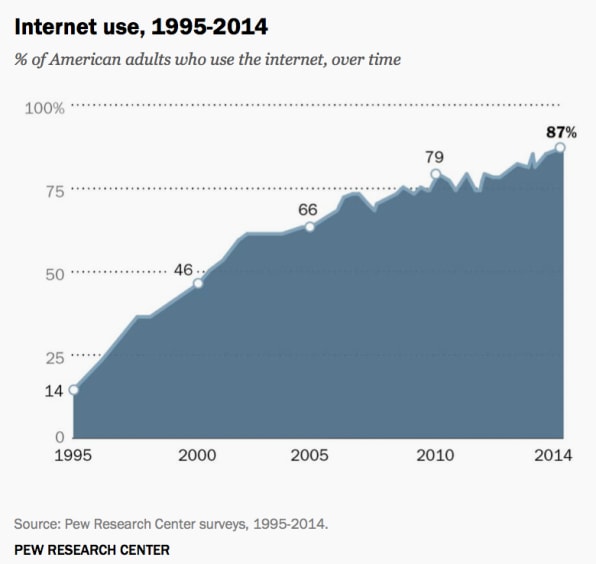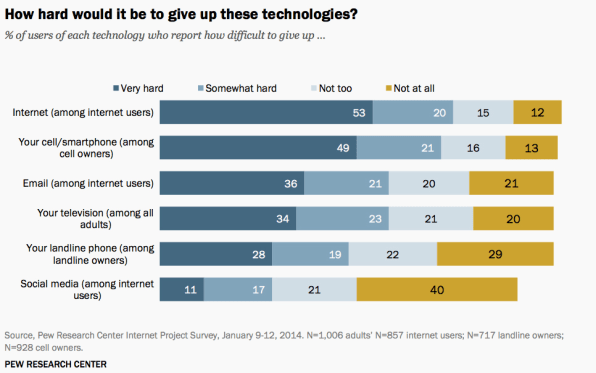What Is World Wide Web and How It Works
On March 12th, 1989, British computer scientist Sir Tim Berners Lee published a mildly titled paper called "Information Management: A proposal." The paper spawned a little thing we know and love called the World Wide Web, which will be 25 years old next month.
In honor of the anniversary of the Web–the Internet architecture that's today's most important gateway to human knowledge, creativity and conversation–the Pew Research Center's long-running Internet Project is releasing the first of a series of reports and surveys taking a big picture look at the technology's historical and current impact on society. (Click this URL to read Berners' original paper, which first described the idea of hypertext).

Today, according to Pew, 87% of adult Americans say they use the web. That number is basically 100% for young people, and those in higher income or education demographic groups. Almost 67% of U.S. adults also connect to the Web via a mobile device.
That's a stark contrast from 1995, the year that Pew's Internet Project launched, when it reported that CD-ROMs were "catching on." As for the Web in 1995, Pew wrote: "The two year old World Wide Web (WWW), which offers a whole new dimension of the Internet is still unchartered waters to most users. Only one in five of all online users (3% of Americans) have ever signed onto the Web. … There are few signs in the study that use of online services or the Internet is changing traditional consumption patterns for news or goods and other services." (You can read more about early web culture in Fast Company's recent oral history of the SxSW Interactive festival).

Pew's latest report, which surveyed 1,006 U.S. adults in January, looks at people's big picture perceptions of the impact that the Internet has had on their lives. Despite controversies about NSA surveillance and more stumbling blocks of online life, such as limitless distractions and an always-on, oversharing culture, Americans seem to have a generally positive outlook about life on the Web.
"Americans clearly think that networked technologies have brought clear personal and societal benefits," wrote Lee Rainie, Pew's Internet Project director, in an email. "Even though there are lots of stories about bad actors and new challenges in online spaces, most report that the overall cyberworld they witness and experience is a pretty nice place."
Among Internet users, 90% say the Internet has been a generally good thing in their life, and 76% say it's been a good thing for society. About 46% of U.S. adults say they Internet–more than email or TV–would be very hard or impossible to give up. Three out of four respondents say they experience "mostly kind" people on the Internet (they must not be journalists). And 67% of respondents think online communication has strengthened their relationships with family and friends.
Berners-Lee himself, however, is worried about the future of his creation at a time when more people are accessing the web through smartphone apps and privacy is a major concern. Now director of the World Wide Web Consortium, a Web standards group founded in 1994, he is a leading advocate for an open, decentralized web that is free from overreaching government surveillance. He sees the power in the new wave of Internet connectivity that communicates vast volumes of shared data, not just words and images–as the Web has mostly been about in the past.
The computer scientist argues that everyday people need to play a bigger role in protecting their own rights. In December, he told the Guardian: "What is obvious now is that not only must the web be for everyone, we also need everyone to be for the web. The ability to use the web, and the power of it, comes with an obligation: individual web users have to stick up for their rights. The obligation of a web user is to look at the way the Internet is provided and complain very loudly if it deviates from being neutral."
What Is World Wide Web and How It Works
Source: https://www.fastcompany.com/3026855/25-years-later-the-verdict-is-in-the-world-wide-web-is-a-good-thing